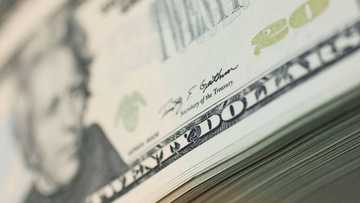US banks caution on economy as Fed rate hikes boost earnings

Source: AFP
PAY ATTENTION: Let yourself be inspired by real people who go beyond the ordinary! Subscribe and watch our new shows on Briefly TV Life now!
Results of large US banks released Friday underscored the boon from higher interest rates, as executives described the world's biggest economy as "resilient" but facing risks.
JPMorgan Chase, Citi and Wells Fargo all enjoyed the benefits of being able to charge higher rates on credit cards and other loans, while not yet suffering as much of a hit from elevated interest payments to depositors.
JPMorgan and Wells Fargo both reported huge increases in second-quarter profits while Citi experienced a drop, citing an anemic investment banking market as a drag on revenues.
Executives for the banks -- which have extensive retail operations throughout the United States -- described American households as still fairly healthy. But there are more signs of strain after a lengthy period of elevated inflation and the erosion of savings from pandemic fiscal programs.
"We have seen payment rates start to come down a bit," Citi chief financial officer Mark Mason said of credit card payments, adding that the hit is greatest among consumers with low credit scores.
Citi's base case is still for a "mild recession" in the US economy, Mason added.
PAY ATTENTION: Click “See First” under the “Following” tab to see Briefly News on your News Feed!
At JPMorgan, profits for the quarter ending June 30 were $14.5 billion, up 67 percent from the year-ago period, while revenues were up 34 percent to $41.3 billion.
Net interest income (NII), which accounts for the gap between revenues for higher interest rate charges on clients minus the hit from higher interest payments to depositors, jumped 44 percent to $21.9 billion.
The results were the first to include JPMorgan's acquisition of First Republic Bank under a government-orchestrated spring auction, after the smaller lender suffered a fatal run on deposits.
JPMorgan's earnings included a $2.7 billion one-time "bargain purchase gain" on First Republic under a process that cost the Federal Deposit Insurance Corporation about $13 billion to cover the failed bank's losses.
But the acquisition also added to JPMorgan's credit costs in the quarter. The bank added reserves of $1.5 billion in case of bad loans. But excluding First Republic, this figure would have been $326 million, JPMorgan said in its press release.
'Salient' risks
JPMorgan chief executive Jamie Dimon said consumers are still spending but are "slowly using up their cash buffers," as he expressed cautious optimism about the US economy.
"The US economy continues to be resilient," Dimon said. "Consumer balance sheets remain healthy, and consumers are spending, albeit a little more slowly. Labor markets have softened somewhat, but job growth remains strong."
Yet, there are still "salient risks in the immediate view," he added, noting issues including "stubbornly high" inflation, the Federal Reserve's unprecedented "quantitative tightening" policies and war in Ukraine.
At Wells Fargo, profits rose 57 percent to $4.9 billion behind a big jump in NII. Revenues surged 20 percent to $20.5 billion.
The bank set aside $949 million for credit losses, primarily for commercial real estate office loans, as well as for higher credit card loan balances.
"While we haven't seen significant losses in our office portfolio to date, we are reserving for the weakness that we expect to play out in the market over time," said Wells Fargo chief executive Charlie Scharf.
At Citi, profits fell 36 percent to $2.9 billion, while revenues dipped one percent to $19.4 billion.
Citi set aside $151 million in reserves for credit losses, also citing the growth in credit card balances.
Chief Executive Jane Fraser alluded to weakness in trading and investment banking as negative factors.
"Markets revenues were down from a strong second quarter last year, as clients stood on the sidelines starting in April while the US debt limit played out," Fraser said.
"In banking, the long-awaited rebound in investment banking has yet to materialize, making for a disappointing quarter."
Shares of JPMorgan rose 1.7 percent to $151.43 in early trading, while Wells Fargo gained 0.5 percent to $43.92. Citi dropped 0.5 percent to $76.49.
PAY ATTENTION: Сheck out news that is picked exactly for YOU ➡️ click on “Recommended for you” and enjoy!
Source: AFP





